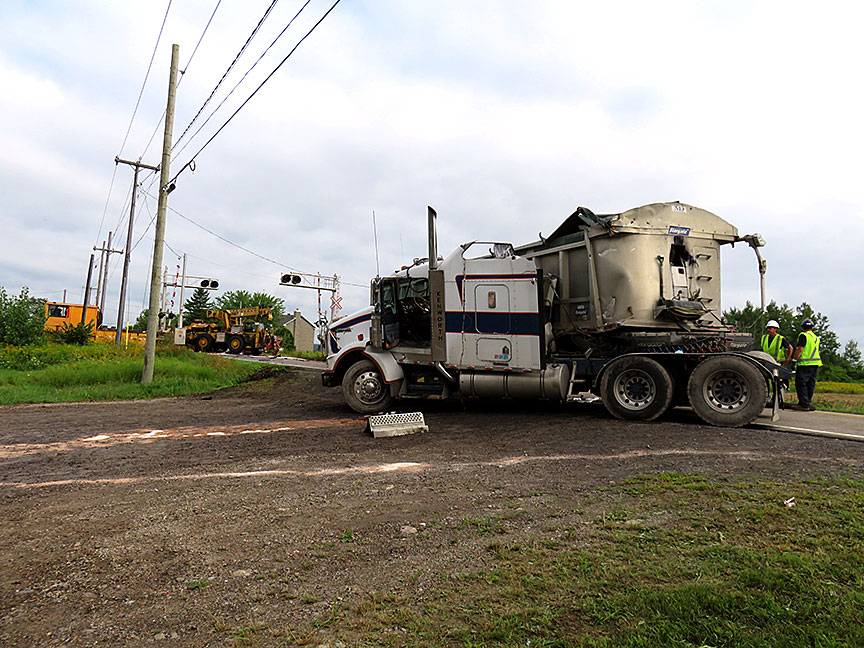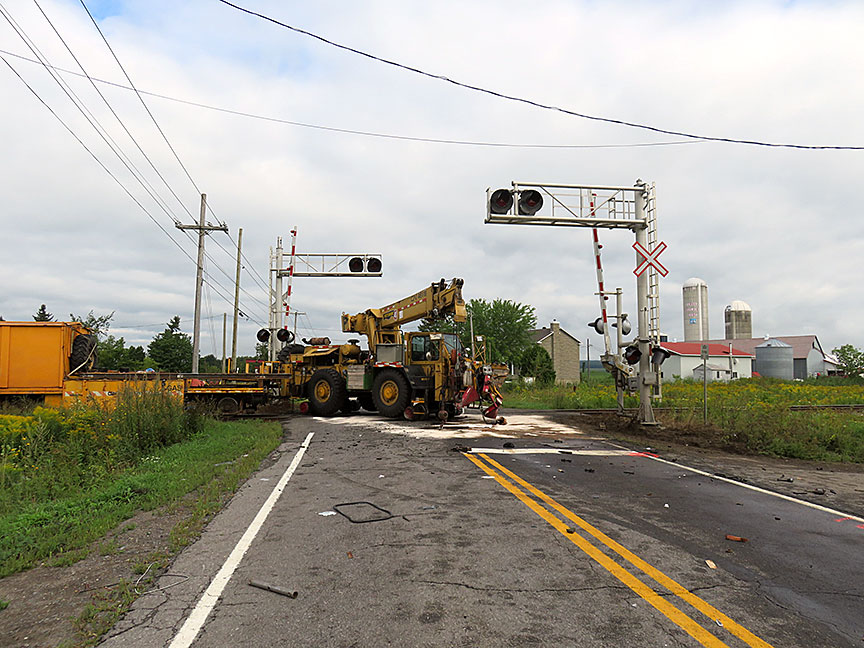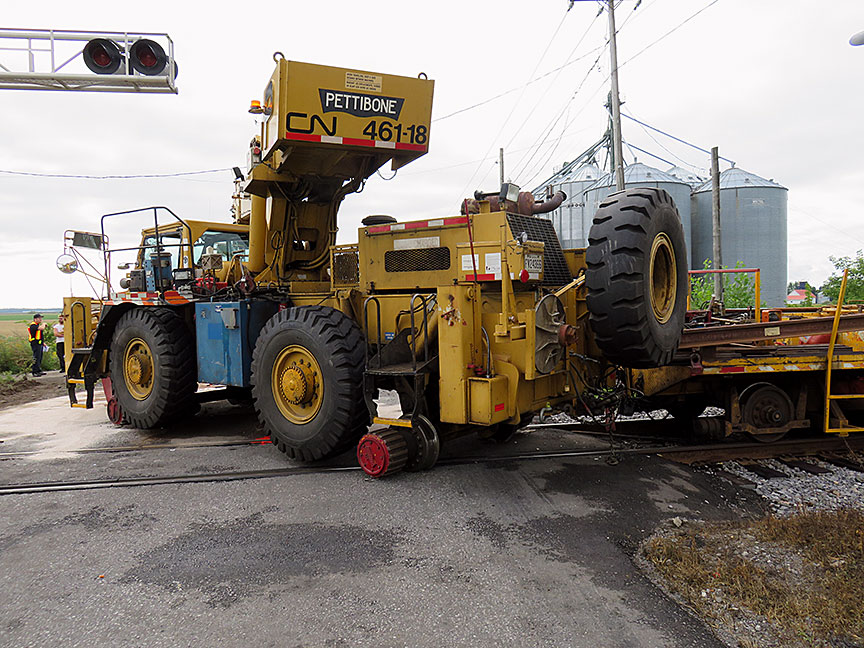Crossing collision
Canadian National Railway Company
Track unit CN461-18
Mile 90.61, Joliette Subdivision
Saint-Norbert, Quebec
The occurrence
On , at approximately 0330 Eastern Daylight Time, Canadian National Railway Company (CN) track unit CN461-18 was travelling northward at approximately 16 mph (26 km/h) on the CN Joliette Subdivision. At the Highway 347 public grade crossing, at Mile 90.61, near the municipality of Saint Norbert, Quebec, the track unit collided with an eastbound tractor-trailer. Two employees on board the track unit and both occupants of the tractor-trailer sustained minor injuries. Approximately 600 L of diesel fuel and hydraulic fluid were released from the track unit and the tractor trailer.
Media materials
News release
Gaps in flagging procedures led to 2016 crossing collision near Saint-Norbert, Quebec
Read the news release
Deployment notice
TSB has deployed an investigator to a rail accident in Saint-Norbert, Quebec
The Transportation Safety Board of Canada (TSB) has deployed an investigator to a rail accident in Saint-Norbert, Quebec. The TSB will gather information and assess the occurrence.
Download high-resolution photos from the TSB Flickr page.
Class of investigation
This is a class 3 investigation. These investigations analyze a small number of safety issues, and may result in recommendations. Class 3 investigations are generally completed within 450 days. For more information, see the Policy on Occurrence Classification.
TSB investigation process
There are 3 phases to a TSB investigation
- Field phase: a team of investigators examines the occurrence site and wreckage, interviews witnesses and collects pertinent information.
- Examination and analysis phase: the TSB reviews pertinent records, tests components of the wreckage in the lab, determines the sequence of events and identifies safety deficiencies. When safety deficiencies are suspected or confirmed, the TSB advises the appropriate authority without waiting until publication of the final report.
- Report phase: a confidential draft report is approved by the Board and sent to persons and corporations who are directly concerned by the report. They then have the opportunity to dispute or correct information they believe to be incorrect. The Board considers all representations before approving the final report, which is subsequently released to the public.
For more information, see our Investigation process page.
The TSB is an independent agency that investigates air, marine, pipeline, and rail transportation occurrences. Its sole aim is the advancement of transportation safety. It is not the function of the Board to assign fault or determine civil or criminal liability.


